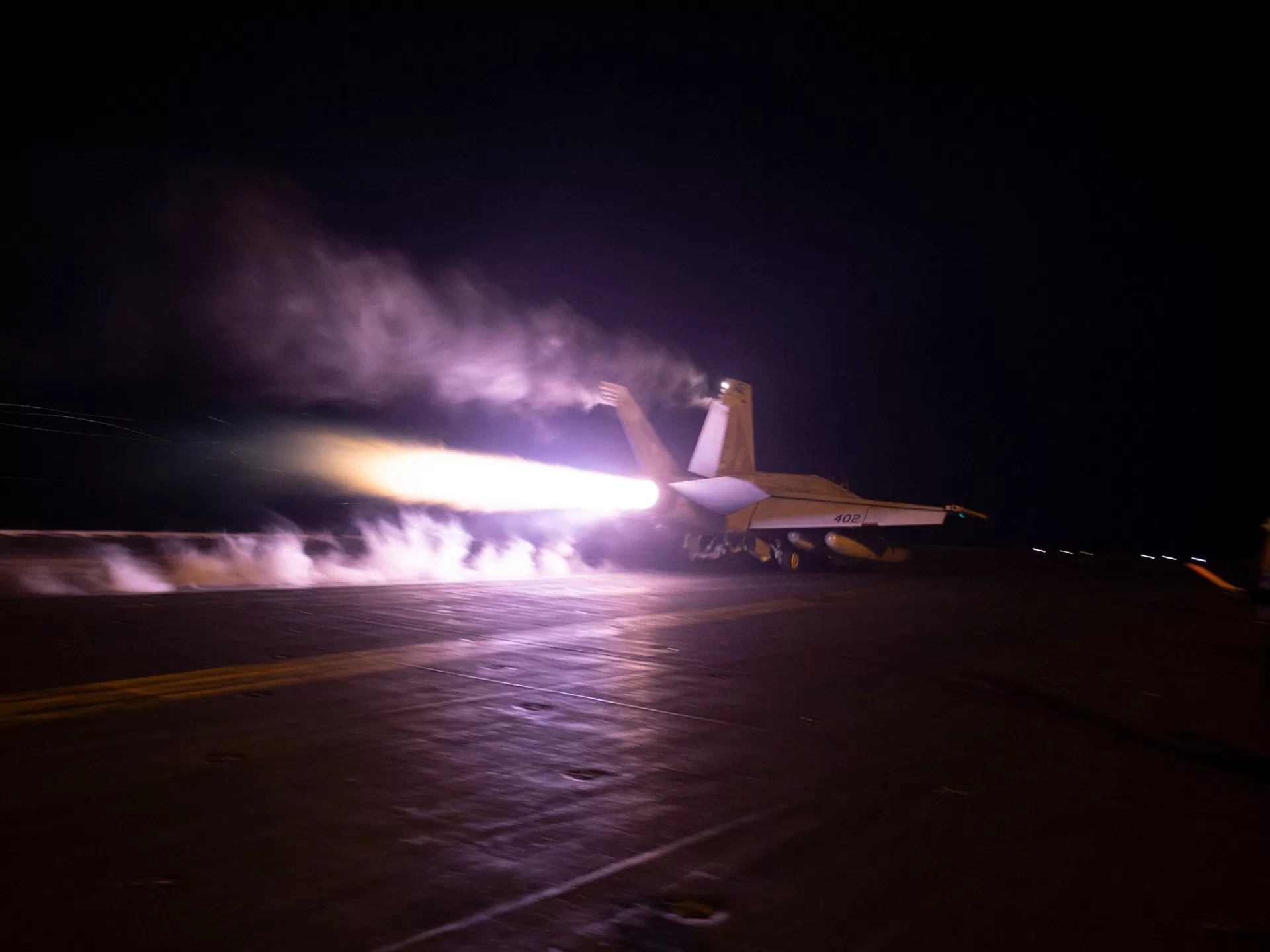US military says Houthi antiship missiles destroyed, hit targets in Iraq linked to armed groups aligned with Iran.
The strikes in Yemen, which took place at 2:30am on Wednesday (23:30 GMT on Tuesday) are the latest attacks against the Iran-aligned group which has been attacking shipping in the Red Sea and has warned it would not stop.
“US forces identified the missiles in Houthi-controlled areas of Yemen and determined that they presented an imminent threat to merchant vessels and the US Navy ships in the region,” the military’s Central Command said, adding that two missiles were destroyed in “self-defence”.
The Houthis, who control the most populous parts of Yemen and support Hamas, say their attacks are in solidarity with Palestinians amid Israel’s relentless bombardment of the Gaza Strip.
U.S. CENTCOM Destroys Two Houthi Terrorists’ Anti-Ship Missiles
On Jan. 24 at approximately 2:30 a.m.(Sanaa time), U.S. Central Command forces conducted strikes against two Houthi anti-ship missiles that were aimed into the Southern Red Sea and were prepared to launch. U.S.… pic.twitter.com/l3CMPrDx92
— U.S. Central Command (@CENTCOM) January 24, 2024
The Palestinian health ministry says more than 25,000 people have been killed and more than 63,000 wounded in Israeli attacks on Gaza following Hamas’s assault in Israel on October 7, which Israeli officials say killed 1,139 people.
Since the US and its allies started attacking Houthi military sites on January 11, the Pentagon says it has destroyed or degraded more than 25 missile launch and deployment facilities, more than 20 missiles, while also hitting drones, coastal radar, the group’s air surveillance capabilities and weapons storage areas.
Strikes in Iraq
Separately on Wednesday, the US targeted sites used by Iran-backed armed groups in Iraq, US Secretary of Defense Lloyd Austin announced, days after US troops in the country were attacked.
On Saturday, four US personnel suffered traumatic brain injuries after the Ain al-Asad airbase in western Iraq was hit by multiple ballistic missiles and rockets allegedly fired by Iranian-backed militants.
“US military forces conducted necessary and proportionate strikes on three facilities used by the Iranian-backed Kataib Hezbollah militia group and other Iran-affiliated groups in Iraq,” Austin said in a statement.
“These precision strikes are in direct response to a series of escalatory attacks against US and Coalition personnel in Iraq and Syria by Iranian-sponsored militias,” he noted.
Kataib Hezbollah military spokesperson Jaafar al-Husseini said in a post on X that the group would continue to target “enemy bases” until the end of Israel’s siege in Gaza and singled out US support for Israel’s campaign.
Iraqi sources said at least two people were killed and two wounded in the latest strikes in Jurf al-Sakhar, south of the capital Baghdad, as well as in the al-Qaim area on the border with Syria.
Iraq’s army said the US attack harmed “security and stability” in the country.
“This unacceptable act undermines years of cooperation, blatantly violates Iraq’s sovereignty, and leads to an irresponsible escalation at a time when the region faces the danger of expanding conflict over the immoral war of extermination that the Palestinian people are facing,” Major General Yahya Rasool was quoted by the Iraqi News Agency as saying.
A senior Iraqi official said that US air raids “do not help bring calm”. “The US side should pile on pressure for a halt to the [Israeli] offensive in Gaza rather than targeting and bombing the bases of an Iraqi national body,” Qasim al-Araji, national security adviser, said in a post on X.
He was referring to the Popular Mobilisation Forces (PMF), also known as Hashd al-Shaabi, an alliance of Iran-aligned former paramilitary groups now integrated with Iraq’s armed forces.
Iraq has also condemned previous such attacks, with Prime Minister Mohammed Shia al-Sudani calling for US-led coalition troops in the country to leave.
Meanwhile, the Financial Times reported on Wednesday that the US has asked China to urge Iran to rein in the Houthi rebels, but has seen little sign of help from Beijing. Washington has repeatedly raised the matter with top Chinese officials in the past three months, it said.
Secretary of State Antony Blinken also raised the issue with his Chinese counterpart, the report said, adding that US officials believe there was little evidence that China had put any pressure on Iran to restrain the Houthis beyond a mild statement Beijing issued last week.
